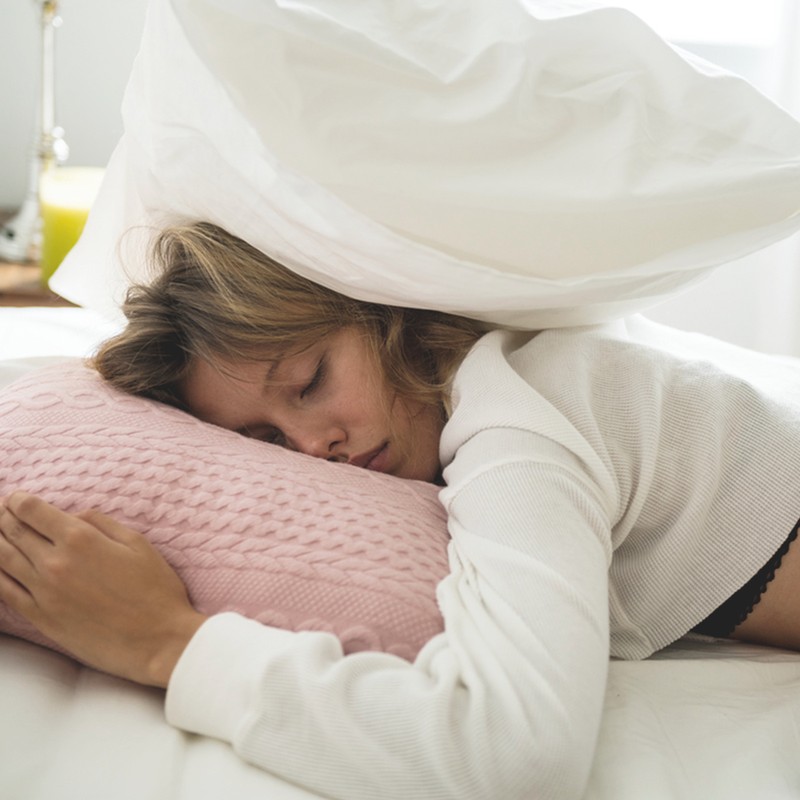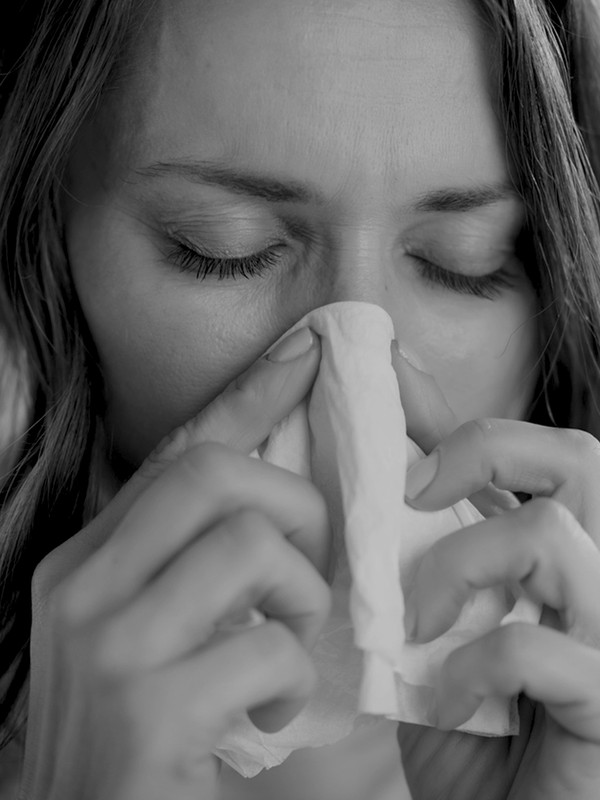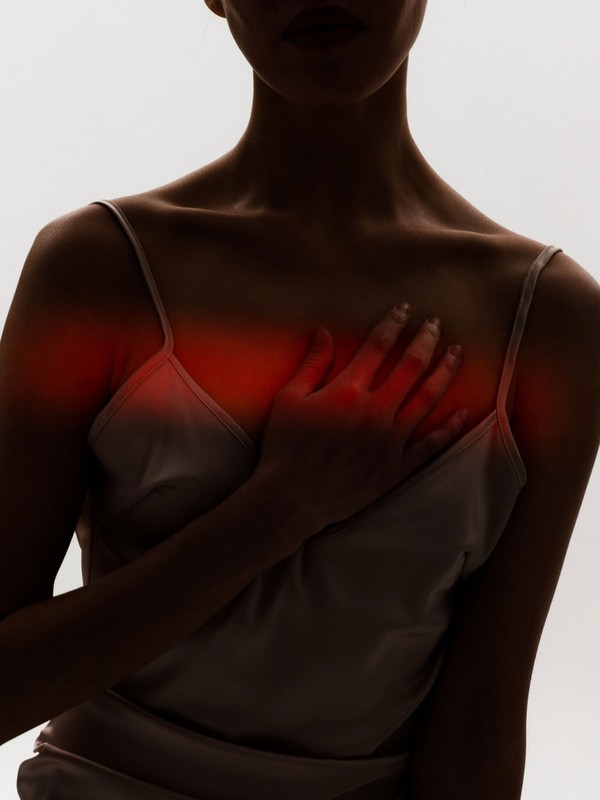This Is Why You Feel Tired All The Time
Why do some people struggle with their energy levels more than others?
Poor nutrient status is a very common reason, and while this can occur from a bad diet it’s not always the case – you might be eating well but other factors can affect your energy levels like stress. Women experiencing periods are at a disadvantage as iron and magnesium can be lost through menstrual blood and having a gynaecological condition such as PCOS or endometriosis can also make some women more tired than others. Our thyroid plays a huge part in it too, and one that is sluggish or has a diagnosed condition can cause fatigue, this can also be the case for those with digestive issues, as when digestion is compromised it can be hard to absorb the nutrients from foods that give us energy.
However, above all, the interaction between our environment and genetic makeup are what make the biggest difference. You might need more of certain nutrients than others, which is why people should be cautious about removing foods such as meat, fish, eggs or dairy, as these contain many of the nutrients required for energy production and maintenance. While one person may feel great on a vegan diet, another will do poorly because their biochemistry doesn’t allow their body to use the nutrients from plants as effectively. Food intolerances or a gut imbalance such as candida or bacterial overgrowth can also make some individuals feel more tired.
How do you know if your tiredness is not normal?
While there’s no on- size-fits-all when it comes to energy levels, a good way of measuring ‘normal’ tiredness is by looking at your sleep and diet. If you’re managing to consistently get eight hours of sleep, are eating well and still feel tired, it’s worth digging deeper to see if something else is causing your tiredness.
What's the best way to find out if you have a deficiency?
You should see your doctor for tests, but unfortunately not all of them are covered by the NHS and your doctor won’t run them unless they feel it’s necessary. For example, vitamin D testing is not routine. In this case, I recommend Thriva, who offer public-friendly test panels which you can do at home.
For more detailed and extensive testing or to work out what to do with the results, I suggest working with a quailed nutritional therapist. It’s not good to over-supplement so you should get a professional to interpret your test and to help you create a dietary plan. This is especially important if you avoid any foods already.
What foods should you be eating more of?
Energy-boosting nutrients including:
Iodine: Full fat dairy, eggs, seafood, seaweed and fish
Iron: Beans and lentils, nuts, fish, meat
Vitamin B6: Dark leafy greens and green vegetables, wholegrains and meat
Magnesium: Dark leafy greens and green vegetables, wholegrains, nuts and seeds and meat
Vitamin C: Brightly coloured vegetables and fruit.
Any foods to avoid?
Sugar-laden, processed foods – these are low-in-energy nutrients and our body must work harder to process them, which uses up more energy. Try to keep alcohol to a minimum too, as our liver uses up B vitamins, magnesium and iron – all key nutrients when it comes to beating fatigue – to detoxify the booze from our system.
Should I be taking supplements?
If you’re vegetarian or vegan, I recommend supplementing with a multi-vitamin that contains iodine, and consider supplementing iron and zinc. Levels of these minerals tend to be lower in women anyway but are also less present in those who eat a diet without animal by-products.
If you have heavy periods, consider supplementing extra iron and try Wild Nutrition’s Food-Grown Premenstrual Complex, especially if you’rereally tired before or during your period. I also recommend Wild Nutrition’s Food-Grown B Complex Plus and KSM-66 Ashwagandha Plus if you’re frazzled and finding it hard to cope without coffee or sugar. Ashwagandha is a real pick-me-up; supporting modern-day lifestyles by reducing stress levels and anxiety.
How do you know what supplement brand to choose?
Look for those that use the most natural ingredients. They should never have added sugars or chemicals, avoid fillers and binders and explain how they make their formulas. Be wary of supplements containing the below ingredients:
- Colourings, such as titanium dioxide
- Carrageenan
- Glucose
- Talc
- Sugars
- E numbers
- Preservatives (other than natural ones like vitamin E)
I'm already taking supplements, but they’re working. What's wrong?
Absorption and retention are big factors and just taking more of a nutrient does not mean you’ll automatically increase its absorption. Nutrients in food are biologically complex; they contain co-factors that enable us to absorb and retain them. So if you’re using supplements without these co-factors, it will make the absorption process harder.
Wild Nutrition supplements are effective at lower levels when compared to higher dose synthetics because they contain these co-factors, and are also in a diverse range of forms that the body can recognise.
Would you advise people who are tired to do less or more exercise?
A good rule is this: if exercise makes you feel better afterwards, then you should definitely do it, as it can increase your energy. But if you feel worse (especially if you feel unwell), then you should either take a break from exercising until you feel better, or reduce it and minimise the intensity.
If you’re not exercising regularly at the moment, try to slowly introduce activities like walking, yoga, Pilates and swimming, to get your body used to more activity whilst still maintaining energy. I would avoid HIT and spinning classes if you’re exhausted, as these can be more system taxing rather than rejuvenating and, in some cases, can increase stress levels in the body.
Can excessive tiredness be a sign of anything more serious?
Yes, it can indicate medical anaemia, but that diagnosis is less common. More often than not it’s caused by low levels of iron or ferritin (stored iron) – you can still feel tired from low iron/ferritin but not be anaemic. Iron and ferritin levels should be optimal rather than just in the range.
It can also be a sign of low B12 or vitamin D levels, poor thyroid function, an infection or something else entirely. Do always see your doctor, don’t try to guess.
For more nutrition advice, recipes and to shop Wild Nutrition supplements, visit WildNutrition.com; or to book an nutritionist appointment with one of their health experts, visit WildClinics.com
DISCLAIMER: We endeavour to always credit the correct original source of every image we use. If you think a credit may be incorrect, please contact us at info@sheerluxe.com.






